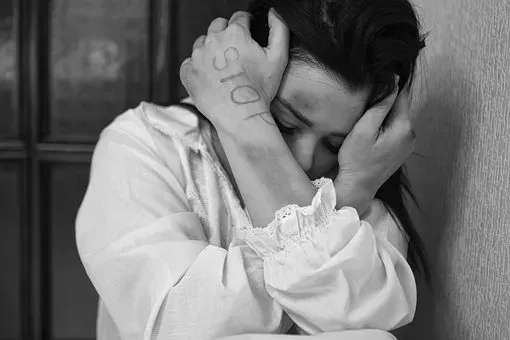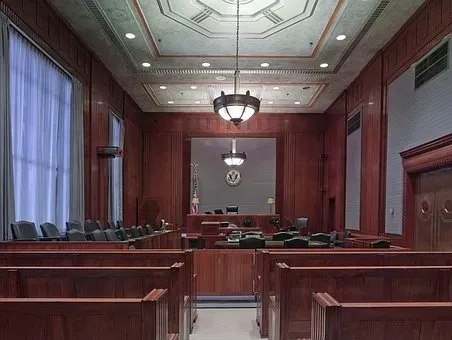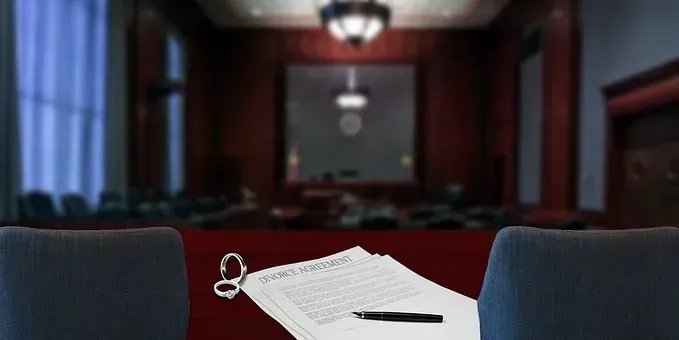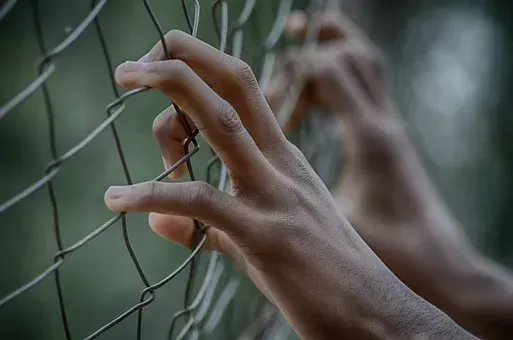Call Us Today
What is an AVO, PPO and FVO?
Whether you are a defendant or respondent in an AVO, PPO, and FVO, get in touch with Andrew Byrnes Law Group if you want to work with a trusted criminal lawyer in Canberra who can provide you with the knowledge and experience to ensure you get the best outcome for your case.
Understanding an Apprehended Violence Order (AVO)
An Apprehended Violence Order (AVO) is a court order that grants protection to an individual to protect him/her from experiencing harassment, assault, property damage, domestic and personal violence, or any other form of abuse whether physical or psychological.
An Apprehended Violence Order is not a criminal offence or an indictment but it is issued as an order to protect victims from the occurrence of future violence.
An Apprehended Violence Order is typically issued on a specific period of time. Within that timeframe, the restrictions will be imposed on the person who is found guilty of violence, threat, and abuse. They may either be restricted from coming in the vicinity where you live and work or be revoked with their license of firearms.
Although it will not be considered and recorded as a criminal offence, an Apprehended Violence Order will significantly affect the life of the accused in terms of their employment, accessibility to firearms, and even custody of their children.
Understanding a Personal Protection Order (PPO) and Family Violence Order (FVO)
A Protection Order is an order from the ACT Magistrates Court that bans an individual from making contact with, approaching, inflicting or threatening to inflict bodily harm, harassing, intimidating, or otherwise acting offensively towards another person.
Protection Orders strive to protect those who are suffering from violence or have reasonable cause to fear it.
Just like an AVO, a Protection Order is given in a specific length of time. The limits will be put in place throughout that time period for the person who was found guilty of using violence, threats, or abuse. They can either have their license to possess firearms revoked or restricted from entering the area where the victim lives and work.
Clearly, if a Protection Order is breached, it is considered a criminal offence. Thus, the victim can immediately call a police during a life threatening situation.
Now that you know what is an AVO, PPO, and FVO, let's explore the two types of Apprehended Violence Orders in NSW and two types of Protection Orders in the ACT.
Two Types of Apprehended Violence Orders in NSW
1. Apprehended Domestic Violence Order (ADVO)
Apprehended Domestic Violence Order (ADVO) is a type of court order designed for individuals living under the same roof, who has been or are currently in an intimate personal relationship, and the members of the Aboriginal and Torres Strait Islander as well as their extended families who are experiencing some kind of domestic and family violence within their area.
Apprehended Domestic Violence Orders (ADVO) can also be applied to those who are under an informal care relationship, whether with a paid or unpaid arrangement, provided that it is only available to the person receiving the care services and not the caregiver.

The Women's Domestic Violence Court Advocacy Services are provided with funds to assist the involved individuals.
An Apprehended Domestic Violence Order (ADVO) has three types:
a. Provisional AVO - is only granted short-term by a police officer during an exigent circumstance or until the matter is resolved in court
b. Interim AVO - is also a short-term order granted by the court until they have deemed a final decision
c. Final AVO - is the final order of the court
2. Apprehended Personal Violence Order (APVO)
An Apprehended Personal Violence Order (APVO) is a type of court order designed for individuals who do not have any relationship or personal connection with the offender. This could be a neighbor, co-worker, a stalker, or a stranger who is trying to threaten or intimidate you for their personal interests.

An Apprehended Personal Violence Order (ADVO) has three types:
a. Provisional AVO - is only granted short-term by a police officer during an exigent circumstance or until the matter is resolved in court
b. Interim AVO - is also a short-term order granted by the court until they have deemed a final decision
c. Final AVO - is the final order of the court
Apprehended Personal Violence Orders (APVO) are observed across all states of Australia.
Two Types of Protection Orders in the ACT
In the Australian Capital Territory, Protection Orders are created through the Domestic Violence and Protection Orders Act 2008. Hence, they are as follows:
1. Personal Protection Order (PPO)
The Court may issue a Personal Protection Order or a Workplace Protection Order to forbid someone from using personal violence against another person or against a workplace. A PPO may be granted for up to 12 months.
What is personal violence?
Personal violence is when someone acts violently toward another individual. Some examples include:
- Physical violence or abuse
- Sexual violence or abuse;
- Threatening behaviour;
- Stalking;
- Harassing, intimidating or offensive behaviour;
- Damaging property
When it comes to the workplace, we consider matters such as having someone in the workplace acting one of the stated abuses state above, or damage to property at the workplace that causes reasonable fear to anyone in the workplace.
2. Family Violence Order (FVO)
A Family Violence Order is a directive issued by the court forbidding family violence against family members. An FVO may be granted for up to two years.
What is family violence?
Family violence is when someone behaves violently towards a family member. Some examples include:
- Physical violence or abuse;
- Sexual violence or abuse;
- Emotional or psychological abuse;
- Economic abuse;
- Threatening behaviour;
- Coercion or any other behaviour that:
- Controls or dominates the family member; and
- Causes a family member to be afraid for their safety or the safety of another individual;
- Behaviour that exposes a child to the behaviours or its effects by hearing, seeing, or other means as stated above
Who Can Apply for an AVO, PPO, and FVO?
You Can Apply for an AVO and FVO
Any individual who has experienced or has been a victim of domestic and family violence, harassment, stalking, intimidation, physical assault, abuse, someone who is under immediate danger, or anyone who is fearing for his/her life has the right to apply for an AVO and FVO.
Depending on your state, they could be any of the following:
- A family member such as a sibling or a parent
- A spouse, partner, or someone who is in an intimate relationship
- A disabled or an aged individual who is under an informal care relationship
- An Aboriginal and Torres Strait Islander kin or extended family members

You Can Apply for a PPO
Any individual who has experienced or has been a victim o physical violence or abuse, sexual violence or abuse, threatening, stalking, harassment, and intimidation has the right to apply for a PPO. You can also apply for a PPO if:
- You are the parent of the victim and the victim was a child. You may submit an application on their behalf.
- Unless they have impaired decision-making abilities, your children who are older than 18 must submit their own applications. You might be chosen as your adult child's litigation guardian if they have trouble making decisions.
- A person with diminished decision-making ability may submit an application through a litigation guardian.
A person who is affected by one of the following may submit a request through a police officer.
You Can Apply for a PPO at Work
You can apply for a Workplace Protection Order if you are an employee, a co-worker, or the employer of a workplace.
What orders are made in an AVO, PPO, and FVO?
Apprehended Violence Orders have certain standards and conditions that must be followed accordingly. This states that the defendant must not be guilty of:
- Physical Assault
- Stalking
- Harassment
- Family Violence
- Intimidation
- Personal Damage
- Physical, Emotional, and Psychological Abuse

Personal Protection Orders have certain standards and conditions that must be followed accordingly. This states that the defendant must not be guilty of:
- Physical Violence or Abuse
- Sexual Violence or Abuse
- Threatening Behaviour
- Stalking
- Harassing, intimidating or offensive behaviour
- Damaging Property
Family Violence Orders have certain standards and conditions that must be followed accordingly. This states that the defendant must not be guilty of:
- Physical Violence or Abuse
- Sexual Violence or Abuse
- Emotional or Psychological Abuse
- Economic Abuse
- Threatening Behaviour
- Coercion
- Controlling a family member
- Causes the family member to fear for their safety and wellbeing
- Sexually Coercive Behaviour
- Damaging Property
- Harming an Animal
- Stalking
- Deprivation of Liberty of a family member
If you found yourself guilty or you have been misidentified to commit any of the acts stated above, you might need to prepare and get yourself geared up with high quality legal assistance.
What Happens When an AVO, PPO or FVO is Applied to You?
When an AVO is Applied
If you have been served with an AVO, whether you are just a victim or a real lawbreaker, you will have to adhere to the terms of the local court. Thus, you may need to attend the specified listing date provided on the Apprehended Violence Order.
The Apprehended Violence Order will indicate the exact time, date, and location of the court you will go to. However, before that day, you will have to decide how you would want to respond to the complaint against you.
The following are some of the things that you could do:
- You can ask for an adjournment or a postponement
- You can ask your case to be moved to another court
- Apply a counter application
- Submit a pledge to the local court
- Oppose the application
- Consent the application and voluntarily agree to the terms set under the Apprehended Violence Order without hesitations
- Request for a reclamation of your property
- Submit a proof (in video) that you are in reasonable grounds
- Wait and do nothing
- Other recommendations as advised by your lawyer

When a PPO or FVO is Applied
If you are the subject of a police protection order or a domestic violence protection order, take the following actions:
- Even if you disagree with the order or notice, you must obey it. Pay close attention to it and don't violate it. For instance, you can still be allowed to stay at home as long as you stop bothering, harming, or threatening the other person.
- Go to court. Even if you don't go, an order may still be made.
- Hire a lawyer. The terms of an order or notice are serious, and it is illegal to violate a domestic violence order (including any temporary orders). You can be subject to a fine, a jail sentence, or both if you are proven guilty of violating the protection order.
- Get assistance from family, friends, or a support group.
For best legal advice, speak with an experienced lawyer before coming up with a decision regarding your Domestic Violence Protection Order as well as when requesting a hearing date.
If you abide by the requirements of a Domestic Violence Protection Order, you won't have a criminal record. On the contrary, breaching it will subject you to a criminal offence.
Depending upon the circumstance, having a Domestic Violence Protection Order could potentially impede your ability to maintain access to licenses and other forms of identification, such as security and firearms licenses.
How to Defend Yourself from an AVO, PPO and FVO
As a defender, you will have to find ways on how you can vindicate yourself from an Apprehended Violence Order and a Protection Order.
Aside from what is provided above, you may also want to further defend yourself to absolve your case as quickly as possible.
Defending Yourself from an AVO
Responding to the Apprehended Violence Order
As stated above, you can choose to agree or disagree with the AVO/PPO/FVO applied unto you. Before the said date, you can ask for a legal counselling on which decision will best fit your case and interest.

Attending the Court Date
The best way for you to defend yourself at this point is to attend court and wait for your lawyer to advise you.
On this day, the judicial officer will first clarify if the accuser still wants to push through with his/her AVO application.
During this time, the court will decide how the case will be handled. You can also prepare and show your evidence for further defence.
Defending Yourself after the Court
Once the case has ended, the Court will finally decide whether your case is dismissed or you will be granted with the Final AVO.
If the Apprehended Violence Order is dismissed, you will be given within 28 days to file a Court Appeal of your case or you can also apply for an Apprehended Violence Order.
However, if the Court has decided to grant you with the Final AVO, you will be given within 28 days to file a Court Appeal of your case, nullify your Apprehended Violence Order, or you can also revoke it.
Defending an Apprehended Violence Order Against Children
Defending yourself from an Apprehended Violence Order Against Children can be different depending on your case.
Aside from you will have to attend it in a Children's Court, you may also face further charges that are not included in the AVO application.
Defending Yourself from a PPO and FVO
Interim Order
An interim order is an emergency order that can last until other orders have been made. In most circumstances, an Interim Order will only be issued when it is critical to safeguard a person or their property. Interim orders are often only issued in conjunction with requests for final orders. There are, however, several exclusions to this.
Special Interim Order
Where the individual who used violence has been charged with a related violence offence, a Special Interim order may be issued. A General Interim order may be issued in every other circumstance.
Attending the Court Date
After the application, the Court will decide when a return conference will take place (usually within 2-10 days).
This will require you to appear in Court to face your victim and defend yourself from the accusation.
A follow-up conference is held to see whether you and the other party can come to a mutually agreeable resolution. At this point, you can be given a chance to put a stop to additional legal actions. Thus, consult with your lawyer what the best action to take to resolve the matter.
Final Order
A hearing will be held if the issue is not resolved. You and the other party will go in front of a magistrate who will determine if a directive should be made. You can either be subject to one of the following:
- An FVO final order may be in effect for up to two years
- A PPO final order may be in effect for up to a year
How Long Does an AVO, PPO and FVO Last?
For Apprehended Violence Orders
Apprehended Violence Orders last depending on the following events:
- failure to attend the scheduled listing date
- the application was revoked
- the Court decides to make an Interim or Final AVO, with your attendance in the court
- you are subjected with an Interim or Final AVO, in your absence to the court
- your Apprehended Violence Orders was dismissed by the Court

For Personal Protection Orders
Depending on the court's judgment, a Personal Protection Order may be issued for a period of time ranging from six months to life.
Other victims can ask for the protection order to be extended within 3 days of the PPO's expiration date. However, it would still be on the judge's ruling to decide upon the specific circumstances.
For Family Violence Orders
A General Interim Family Violence Order often remains in effect until the court approves the application of a Final Family Violence Order. Hence, the date will depend on the Order if the Court decides at some point to shorten the time frame.
If the Interim Order is a Special Interim Family Violence Order, it will remain in effect until the court has resolved any associated criminal charges.
A Final Family Violence Order will normally last for 24 months. However, if there are unique or exceptional circumstances, the Court has the right to extend it.
What Happens When an AVO, PPO or FVO is Breached?
Breaching an AVO in NSW
As stated beforehand, the defendant will have to agree or disagree with the Apprehended Violence Order. And in the event that the defendant breaches the terms stated in the AVO application, that is the time that the accuser can reach out to the police and ask them to conduct an investigation.
Even before the court date, the defendant may also commit other serious criminal offences such as physical harm or destruction of property.

In each Australian state, breaching of an AVO is subject to a serious criminal offence. It may be filed under the Crimes (Domestic and Personal Violence) Act dependent on the state where they reside.
- ACT – Domestic Violence and Protection Orders Act 2008
- Northern Territory – Domestic and Family Violence Act
- New South Wales (NSW) – Crimes (Domestic & Personal Violence) Act 2007
- Queensland – Domestic and Family Violence Protection Act 2012
- South Australia – Intervention Orders (Prevention of Abuse) Act 2009
- Tasmania – Family Violence Act 2004
- Victoria – Family Violence Protection Act 2008
- Western Australia – Restraining Orders Act 1997
As of 2016, the breach rate for the following orders as acquired during the observation period has reached to 20% for the Final AVO, 5% for the Provisional AVO, and 9% for the Interim AVO.
Breaching of an AVO requires you to get a lawyer because there may be additional complications in the case that could not be resolved by simple legal assistance.
Breaching of a PPO and FVO in the ACT
In the Australian Capital Territory (ACT), a defendant can only be found guilty of violating a Domestic Violence Protection Order if they were present in court when it was issued or if they were physically served with a copy of the order.
According to Domestic Violence and Protection Orders Act 2008 (ACT), breaching a protection order is equivalent to a criminal offence. The maximum punishments for violating a protection order also vary considerably between states and territories.
Hence, if the offender breaches a protection order in the ACT, the offender will face a maximum penalty of 500 penalty units ($50,000) or 5 years imprisonment. In other cases, the offender may be subject to both penalties.
If you have been accused of violating a protection order, a lawyer can assist you in making a bail application and in identifying any potential defenses you might have, such as the claim that you were not aware the order even existed.
We Can Help You Handle an AVO, PPO or FVO
We understand that not all individuals who are charged of domestic violence and other criminal acts are truly guilty. Some have been wrongly accused and others have just been victims of a reckless accusation irresponsibly taken out against them.
The Canberra criminal defence lawyers at Andrew Byrnes Law Group are experienced in handling such cases where you have been granted an unfair application of an Apprehended Violence Order, Personal Protection Order, or Family Violence Order. We can also provide you with high-quality representation if you're an applicant for an AVO, PPO and FVO.




















